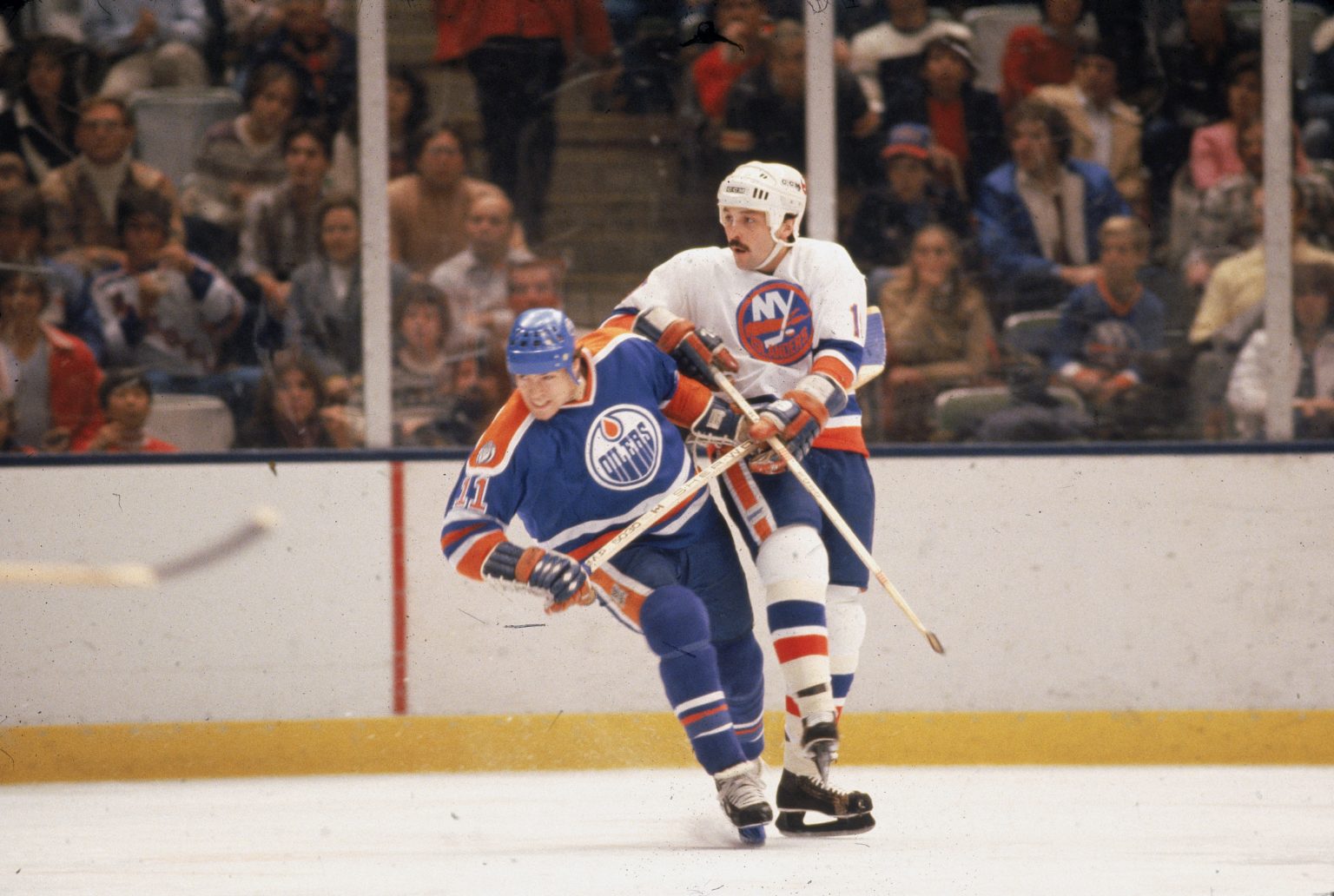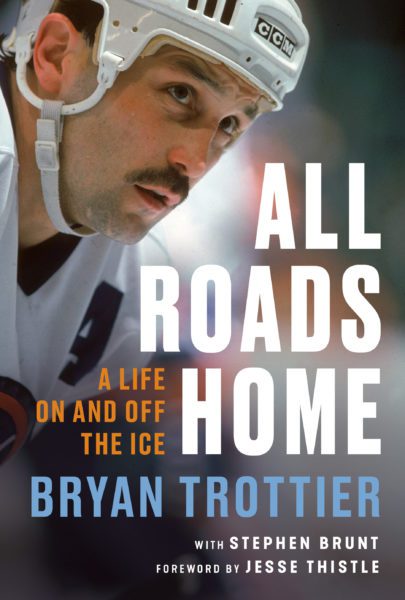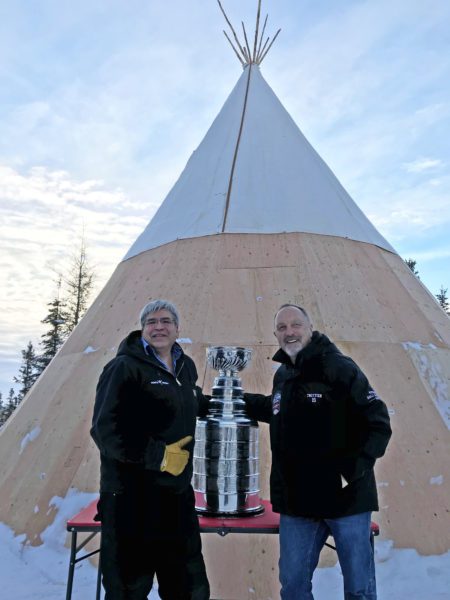
In Conversation with Bryan Trottier
After 18 years spent playing in the National Hockey League and another 10 behind the bench, there is little Bryan Trottier hasn’t accomplished. Rookie of the Year, MVP, points leader, playoffs MVP, and 9-time All-Star, are just a handful of the honours bestowed upon the Hall of Famer.
More importantly, in a profession where one’s legacy is tied to team success, Trottier has won the Stanley Cup a remarkable 7 times. As centreman for the famed Trio Grande line with Mike Bossy and Clark Gillies, Trottier helped the New York Islanders win a remarkable four straight championships.
Trottier is also First Nations and one of the most decorated Indigenous athletes of all time. His roots run deep and ties to family and community are central to his life story. He is now sharing that story from humble beginnings in a Saskatchewan prairie town to NHL icon in a new memoir, All Roads Home.

Harvey Kalles Real Estate: You’ve won seven Stanley Cups. After the first, how do you keep the drive?
Bryan Trottier: It’s the desire to win, the desire to feel like a champion, and to maintain that sense of champion. You get push and pull from your teammates, and we had a really great core, and then the fans, your coach, management. But my bottom line, from day one, when I was a kid, I just wanted to win. I like winning. The feeling of winning is my biggest motivator.
HK: Of all the championships, do you have a favourite?
BT: I’ll steal Ken Dryden’s line…you can only be a champion for the first time once. It’s an eight-year-old boy’s dream come true. To raise the Stanley Cup like Jean Béliveau, Gordie Howe, Bobby Orr, and players before me. I watched them raise the Cup on TV, that was my dream. It wasn’t about money, it wasn’t about bonuses, it was about the feeling, the absolute, indescribable, spectacular feeling of raising the Stanley Cup over my head.
HK: How important were your parents in helping you reach the NHL?
BT: The support and encouragement that you get through those years of growth and development is paramount. Without it, I think it makes it a lot tougher. I always felt like I had my mom and dad on my side. Dad was a little tough, mom was the white hat. It was a good ying and yang to have in my life. I was lucky to have that support and guidance. Always finding the money to have a pair of skates or a hockey stick. Dad played music or sold a horse or did something just to find a way.
HK: For the hockey parents in the audience, what should their role be in nurturing the talent of a child?
BT: Be involved but don’t be over-involved. It’s tough to not be overly involved but you should just want to be there and support and encourage. Be the bank when you have to be, because it is an investment, but know that you’re investing in your child. [They’re learning] a great sport, there’s muscle development, being part of a team, life skills, all those wonderful things that sports teach us. And hope that your child plays at the highest level they can, and from there, just take away all the wonderful memories, friendships, relationships, successes, and lessons learned.
HK: You’re one of the most decorated indigenous athletes in the world. What does that mean to you?
BT: I stole that line from a native who told me that. I didn’t know if it was true or not…but I loved it! It makes me feel an added pride, not just because of my family, but because of my native roots, and the pride that the indigenous community throws on me at times. It reflects on my grandparents and great grandparents. I never forget my Irish roots, but it’s wonderful that the native community recognizes me as somebody who’s had all this success in a team sport, and I carry it with humility, but also with this this growing sense of pride for First Nations, in general.
HK: You share some anecdotes of racism, but it always seems outside the locker room. Does the NHL have a racism problem?
BT: I don’t think so. In the game, growing up, there was always name calling. It wasn’t just the First Nations, everybody got it. I never felt it was racism…I thought it was a way to try to get in someone’s grill. I’m glad now that people are more aware of it and more sensitive to it because it can be hurtful and damaging if you don’t have thick skin. You’ve got to have thick skin, but I think society, in general, recognizes that there’s a responsibility to not drag people down, or stereotype, or throw ugly stigmas.
HK: We’ve recently seen the Washington Commanders and Cleveland Guardians get a new name. Why aren’t the Chicago Blackhawks held to the same account?
BT: I always deflect this because I’m of the mind that tradition is a wonderful thing, and the brand recognition, and the powerful pride people take in that. Sometimes the voices that believe there’s a negative aspect to it seem to be the loudest. I think the Blackhawks logo looks proud. I think they’ve recognized the pride of the Blackhawk people. I have to deflect because there’s stronger voices than mine on this, but throughout my life, when I’ve seen a logo with a First Nations person on it, I just beam. I think that there are a lot more of us that just aren’t voicing it.
HK: In Long Island, they’ve retired your jersey, flanked by your linemates Clark Gilies and Mike Bossy. What was it like to play with Mike Bossy?
BT: When they put my jersey up, Mike and Clark’s were up there, and when my jersey slid right in there between those two, it was chilling. To play with someone like Mike Bossy who was so juiced up every game to score goals motivated me. The friendship that we created and the chemistry we had on the ice…I look back and think how did we do that? That sense of kinship and the desire to win. He learned from me, I learned from him. We bonded and found a way to succeed and that is the moral. Success. We wanted each other to be the best we could be for each other. I needed Mike, Mike needed me. I needed him and Clark and Denis, we all leaned on each other, relied on each, depended on each other, and succeeded together. That’s a team.
HK: You’ve played with so many greats. Is there a common trait that the best players share?
BT: Without a doubt, it’s calm amongst chaos. When everybody else is frantic, they’re composed, poised and ready. The level of urgency, the level of execution, when everybody else is feeling the nerves, this is where we want to be. This is the moment we practiced for our whole lives, and we’re excited and happy about it. Are we nervous? Yeah, but it’s fun nervous.
HK: When you decided to retire what was harder, letting go of the game or the locker room?
BT: Without a doubt, the competition. That adrenaline and the anticipation of battle and playing in the games is the thing I miss most. There’s nothing I could do that got me that excited or that up.
HK: Who is your favourite player today?
BT: I’m a huge Sidney Crosby fan, and a huge Patrick Kane fan. McDavid’s really climbing the ladder fast. We don’t see enough of him out here but he’s just a wonderful young talent.
HK: Do you like how the game has changed since you played? For example, the instigator penalties or the shootout?
BT: The NHL has allowed referees to call penalties that should be penalties, and I think it’s great because it allows for the skill, and the speed, and the grace. The purists like Mario Lemieux, Guy LeFleur, and Bobby Orr, could just fly on the ice and make it look great. Mike Bossy coming off the wing, slapshot…those are my memories, not someone running somebody through the boards.

HK: Who’s going to win the cup this year?
BT: It’s going to be a fun year, there’s a lot of teams in the mix. Obviously, I go for my favourites…Islanders, Penguins, Avalanche, always…but it’s fun to see the very best of the players get an opportunity to achieve. We saw MacKinnon last year. I’d like to see McDavid win. It just looks good on the very best of the very best when they do achieve a championship.
For more information on Brian Trottier, and his upcoming memoir, All Roads Home, visit: www.penguinrandomhouse.ca

